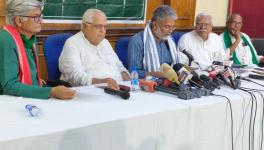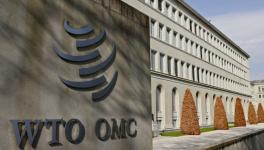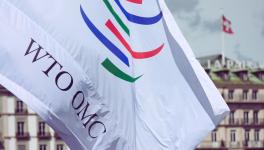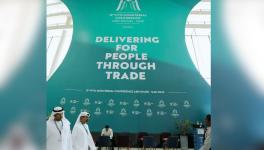India’s Production of Affordable Generic Drugs is Under Attack by the United States of America

Image Courtesy: The Economic Times
India being a producer of affordable, quality generic versions of life-saving medicines is under attack by the government of United States of America and the pharmaceutical industries. One of such attacks is the “Special 301 Report” of The Office of the United States Trade Representative (USTR), released on April 25, 2019.
“These unwarranted pressure tactics, if successful, shall limit countries’ scope of using internationally agreed public health safeguards, and threaten to undermine their domestic health efforts. Considering that people’s health and access to medicines is at stake, developing countries should not capitulate to United States’ pressure at the behest of multinational pharmaceutical corporations against the interest of all people who need access to medicines,” noted the MSF (Médecins sans frontières) or Doctors Without Borders, a medical non-governmental organisation in its press release.
Also Read: Why Access to Healthcare is a Bigger Problem Than Quality in India
USTR, an American agency that develops and designs the United States trade policy, released its annual report on April 25, 2019. Based on the “violations” of the stringent IP standards of the Powerful pharmaceutical industries in the U.S. the countries have been named in it’s “watch list.” In this report the USTR has placed 36 countries under what it calls “priority watchlist” and “watchlist.” India is on its Priority Watch List for alleged violations of intellectual property rights along with Algeria, Argentina, Chile, China, Indonesia, Kuwait, Russia, Saudi Arabia, Ukraine and Venezuela. Along with Intellectual Property rights for all sorts of trade, the report also talks of Medicines; Malaysia is named for compulsory licensing “concerns.”
Ever since India issued a compulsory licence in March 2012 attacks by the U.S. government and industry on India’s patent laws began. MSF observing the report in question here, has noted it as just another tactic of the U.S. to generate pressure on the global south to enact more stringent intellectual property standards and enforcement. If this has to happen then the people all across the globe can’t afford their medicines because pharmaceutical corporations choose to charge unaffordable prices.
Also Read: Interim Budget Reflects Push for Insurance-Based Health Care: JSA
The US pharmaceutical and medical device industries are increasing the pressure on India against price controls of medicines and medical products. The industry has been also taking all possible measures to ensure that the public health safeguards provided under the Indian patent laws are not emulated to other developing countries. The MSF noted, “Not surprisingly, India is named in the report for the country’s patentability criteria, compulsory licensing criteria and absence of an additional intellectual property monopoly—data exclusivity.”
India continues to be a source for more affordable generics in part because of a patent law that applies legal safeguards for public health that comply with international trade rules outlined in the World Trade Organization’s (WTO) Agreement on Trade-Related Aspects of Intellectual Property Rights (TRIPS agreement). MSF noted, “India’s patent and drug regulatory laws and policies have helped to protect price-lowering generic competition, so much so that the country is known as the "pharmacy of the developing world" because it supplies affordable quality generic medicines globally.”
MSF had earlier observed the possibility of the U.S. pressure working, under the current corporate friendly Narendra Modi led BJP government: “In spite of responses by Indian government officials that India’s patent laws are compliant with international rules, there is reason to be concerned that this pressure may be having an effect. The new government has delayed a decision to allow generic production of an exorbitantly-priced patented anti-cancer medicine that is unaffordable for patients in the country, in spite of a recommendation by a Health Ministry expert committee. Just before Prime Minister Modi’s visit to the US, India announced the development of a national intellectual property rights (IPR) policy to ‘clarify’ existing IP laws, the drafting of which was tasked to a think tank with worrying potential conflicts of interest.”
Also Read: Unholy Nexus Trumps Public Health
The MSF, which considers compulsory licensing a much-needed and legally permissible tool to overcome patent barriers where necessary, in its press note urged the Malaysian government to continue to reject any pressure from pharmaceutical corporations or their political allies to reverse the government use licence issued to enable access to an affordable version of the hepatitis C drug Sofosbuvir.
Get the latest reports & analysis with people's perspective on Protests, movements & deep analytical videos, discussions of the current affairs in your Telegram app. Subscribe to NewsClick's Telegram channel & get Real-Time updates on stories, as they get published on our website.
























